SALT LAKE CITY, Utah—When you hear “Westminster,” you’re likely to think of the historic London abbey … maybe that prestigious dog show in Madison Square Garden – certainly not a private, liberal arts college in northern Utah.
Yet, in its own way, Westminster College is making a name for itself – and not just because its proximity to world-class winter sports training facilities makes it a top college choice among Olympic athletes and hopefuls. The college, with a total enrollment just shy of 2,700, is also the only secular, private four-year postsecondary institution in Utah. (Brigham Young University is affiliated with the Church of Latter-day Saints).
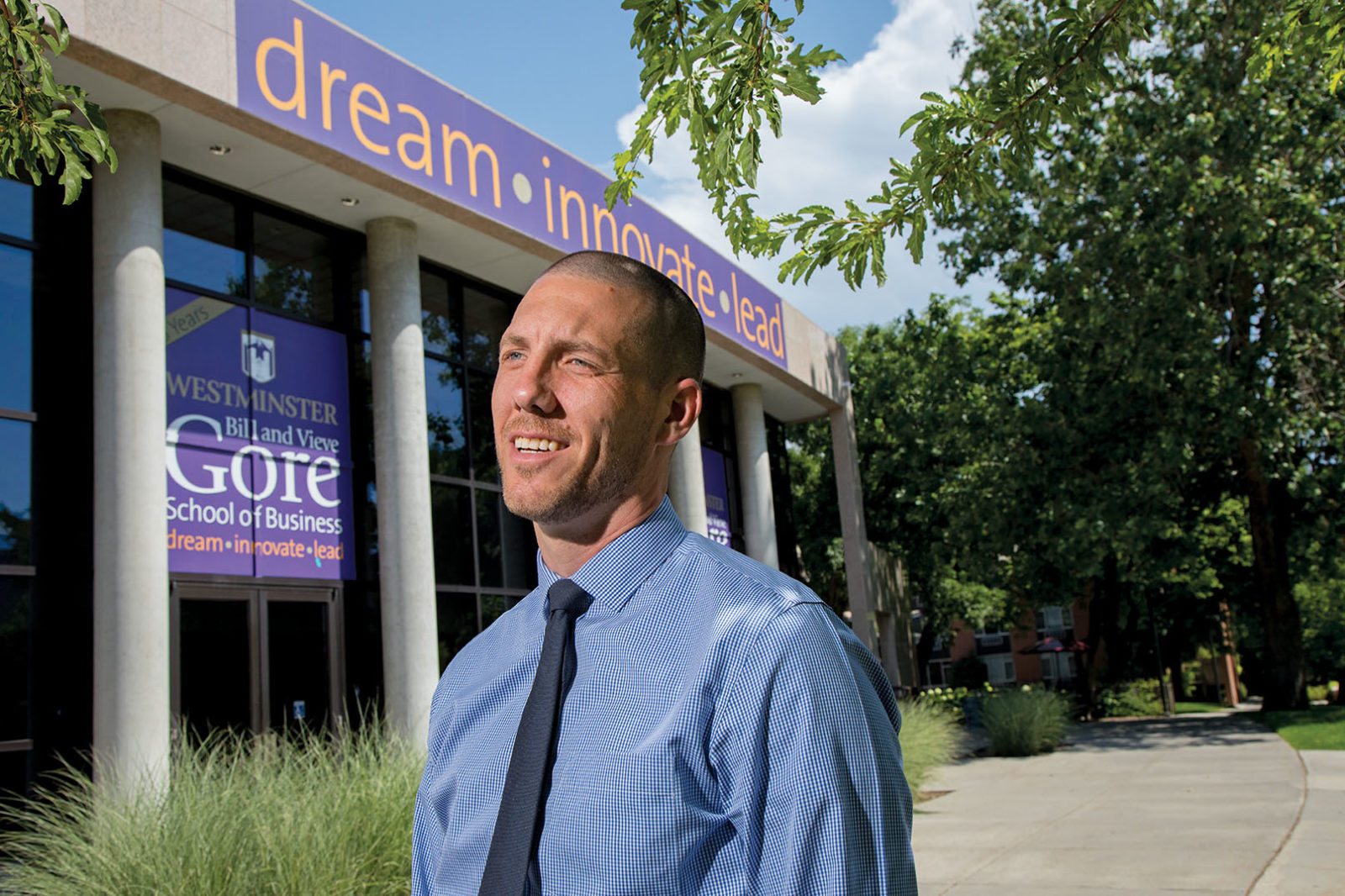
The way Westminster is really setting itself apart, though, is by quietly carving out a reputation as a trailblazer in serving adult students. It’s doing that by focusing on competency-based education (CBE), an approach in which students learn, not by earning credit hours in traditional courses, but by completing practical projects and demonstrating specific learning outcomes.
“This is a trend in higher education,” says James Hedges, director of innovative learning and the architect of the college’s CBE program when it was introduced in 2008. “It is going to accommodate the changing demographics in higher education. And if we want to be successful, we need to be adaptive to that landscape. I could not, moving forward, endorse anything more than this type of learning.”
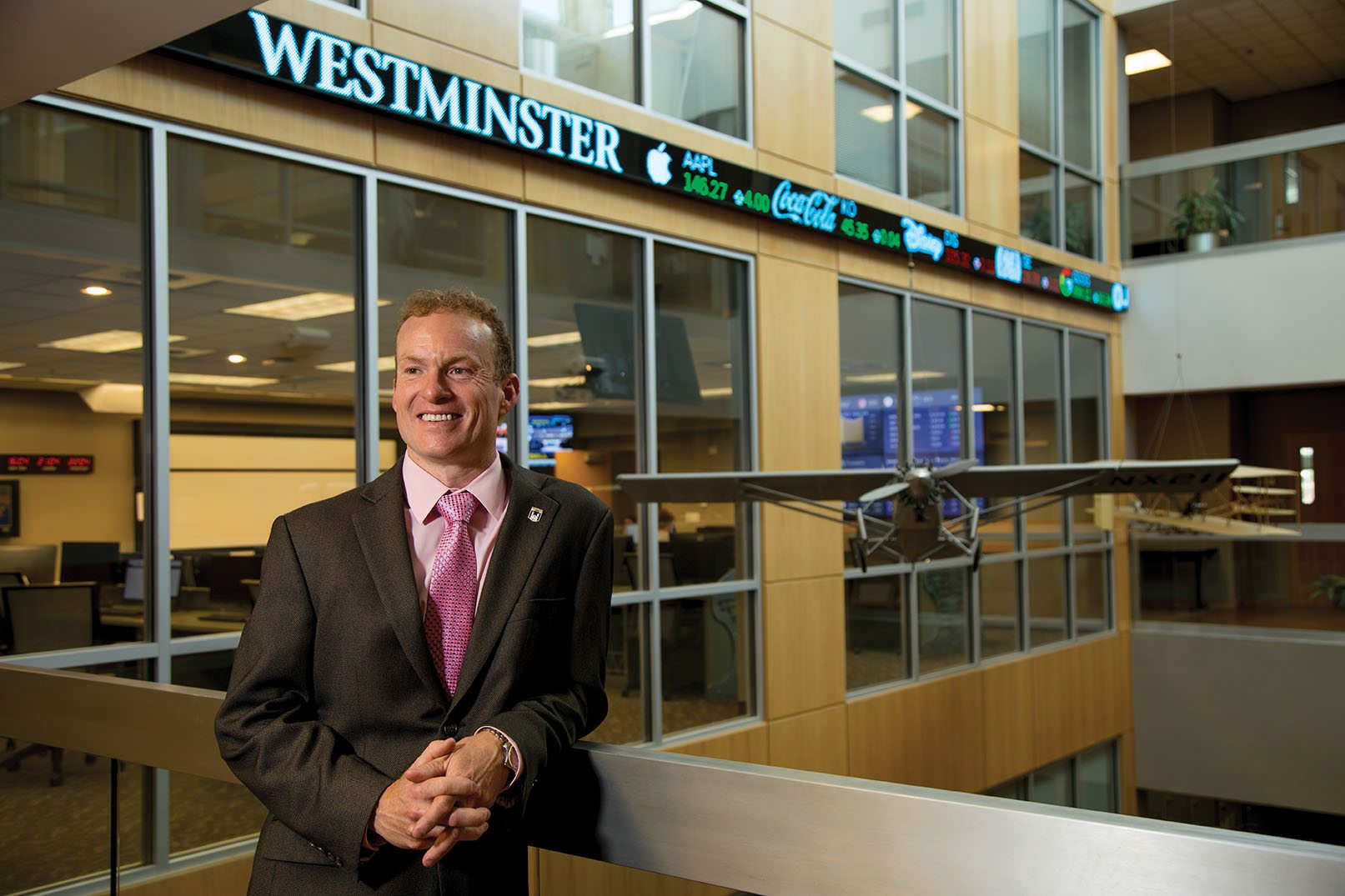
That endorsement is shared by Westminster business major Amy Archuleta, a mid-life student whose academic odyssey was cut short by motherhood, divorce and the unexpected success of an entrepreneurial venture.
A Utah native, Archuleta once envisioned a bachelor’s degree as the first step toward a life of luxury in a Manhattan penthouse. But it didn’t quite turn out that way. By age 21, she had a husband, two young children and a home far from the bright lights of Broadway. Along the way, she parlayed an associate degree into a position managing a health clinic. However, her formal education stalled the day she left Salt Lake Community College.
It was at the clinic, after the marriage ended, that Archuleta – a single mother trying to make ends meet – met Mark Cacciamani, an idealistic family-practice physician looking to do more than treat sore throats and other minor maladies.
The doctor and the office manager began to date, married and then became partners in a business venture that reshaped a time-honored medical tradition to fit the 21st century. The venture – House Call Doctors – flourished through word of mouth. “We never had to advertise,” says Archuleta. “I knew the back end of the industry; he knew how to be a doctor. It worked out great.”
Dusting off a dream
In fact, it worked out so well that, 10 years later, House Call Doctors attracted a suitor willing to pay Archuleta and Cacciamani a hefty price for the business. The couple agonized long and hard before turning down the offer. But that process moved Archuleta to act on a pair of deferred dreams: starting a business of her own, and completing college – a task that was disrupted by early marriage and motherhood.
“I always knew I wanted to continue my education,” Archuleta says. “I guess more than anything I wanted the credentials after my name – something that said I am certified, that I’m good at what I do.”
With her two children from the first marriage in their 20s, the son born to Archuleta and Cacciamani no longer requiring constant care, and the decision on House Call Doctors behind them, Archuleta concluded: “Now is the time for me to go back to school.”
To meet that objective, Archuleta sought a four-year degree program that fit her needs. In other words, it had to accommodate the busy schedule of a small business owner and 43-year-old mother with zero interest in “a traditional school setting where I’d be sitting in a classroom with a bunch of 20-year-olds.”
The search ended on the 32-acre Westminster campus in Sugar House – a neighborhood of single-family homes and funky boutiques 10 minutes south of Temple Square in downtown Salt Lake City.
The competency-based Bachelor of Business Administration program appealed to Archuleta, in part, because it included a prior learning assessment – a detailed review of what she had learned through her business experience. This put her on a fast track toward a degree, sparing her from the baggage of mandatory preparatory classwork.
The program Archuleta entered in August 2016 had changed significantly since 2008, when Westminster introduced competency-based education in a certificate program in leadership. The school has since added the bachelor’s degree in business administration, a four-year nursing degree and graduate degrees in business administration and strategic communication.
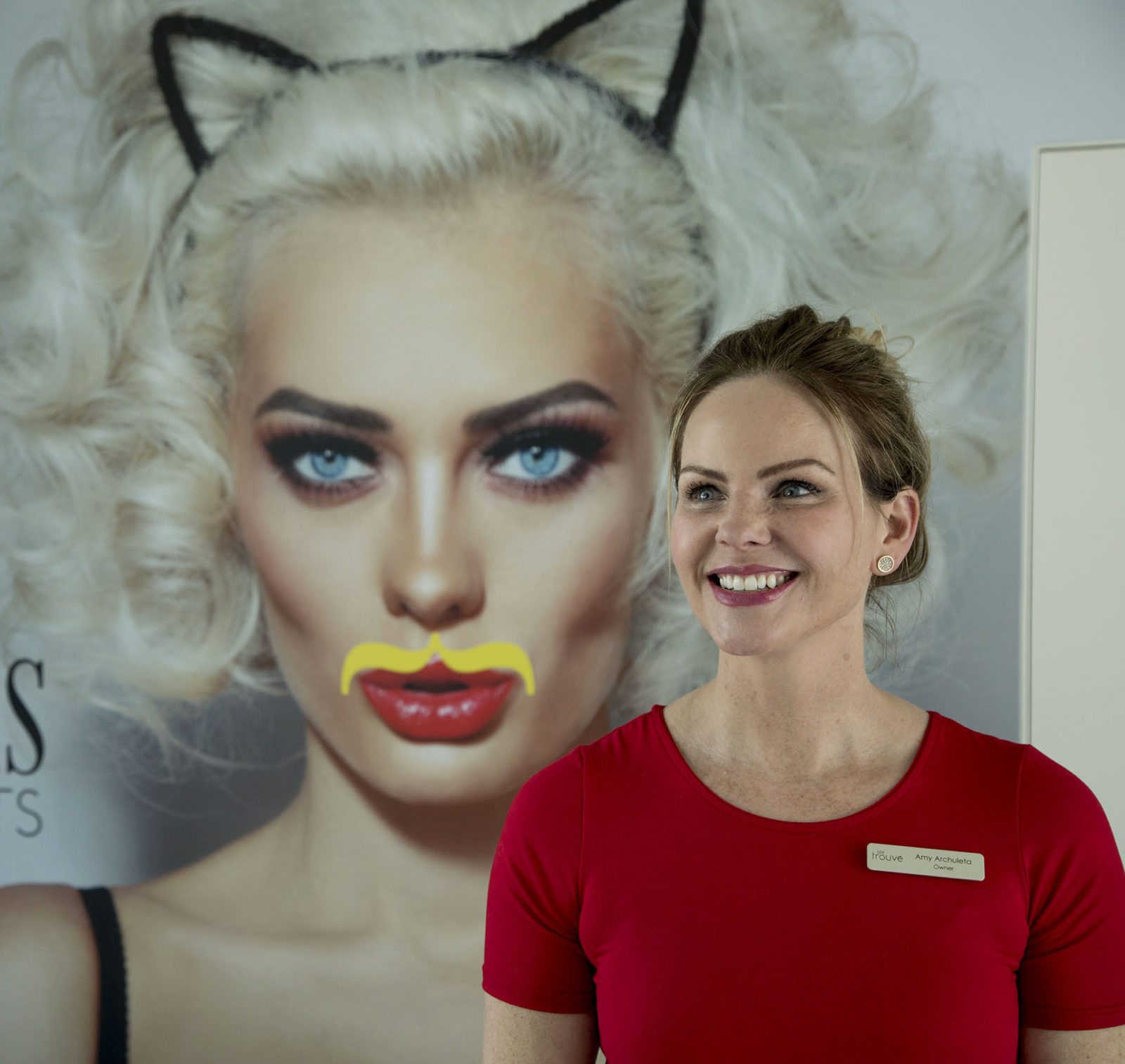
Provost Lisa Gentile says Westminster’s commitment to a self-directed, competency-based pathway is about far more than increasing enrollment or making schedules more flexible.
“To me, it’s a social justice issue,” Gentile said in a May interview in her Bamberger Hall office. “I believe anyone who wants an education should have one. And (CBE) helps to make that possible.”
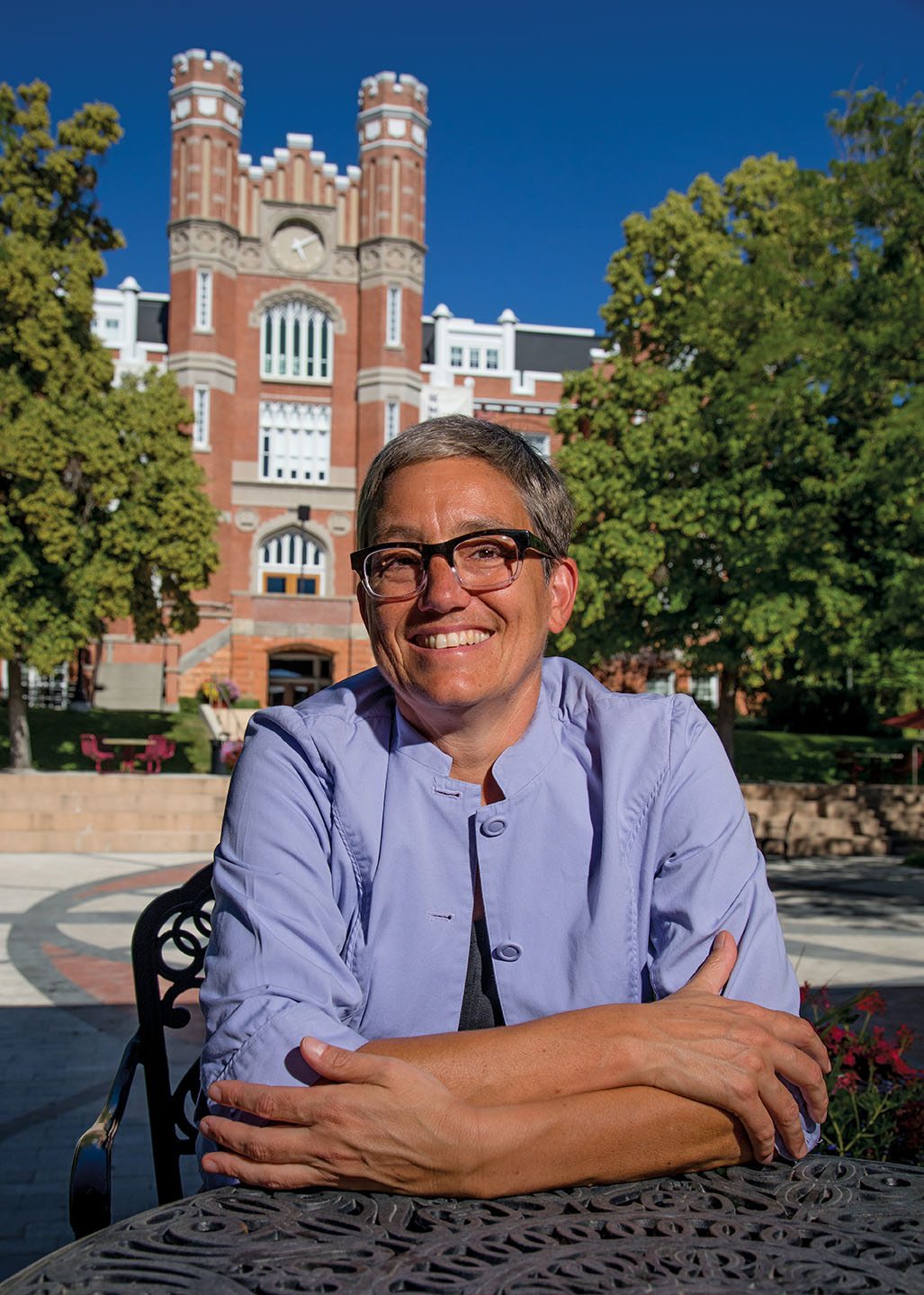
In competency-based education, students earn their credentials – from certification to baccalaureate degrees – by completing “sequence projects,” a variant of conventional independent study.
“The learning objectives (for CBE students and students in comparable traditional online and classroom courses) are the same,” says Dax Jacobson, an associate professor of management who serves as the college’s director of competency-based programs. “But instead of sitting in class, the CBE students are doing it on their own.”
Associate Professor Curtis Newbold typically works with students between age 30 and 35 in the Master of Strategic Communication degree program. “These are smart, ambitious people with full careers,” he says.
Strategic Communication differs in some ways from competency-based programs in areas of study that tend to be more prescriptive or tightly focused, such as nursing or business. Hedges says Westminster’s communication program is consistent with the liberal arts reputation that the college has earned over its 142-year history.
“Liberal arts is about critical thinking and teamwork – as is CBE,” Hedges points out. “What better place is there to combine the two than in communications?”
Customized courses
As an established communications professional in Baltimore and Vermont, Utah native Melissa Brooke could have leveraged past experience into a well-paying job after she and her family returned to the Salt Lake Valley four years ago. Brooke, 50, who came back to the area with her physician husband and two school-age children, kept a toe in marketing through part-time and voluntary positions in her new home in Park City, the skiing mecca that plays host each year to the famed Sundance Film Festival. Still, she recognized that, in a field perpetually transformed by technology, even a brief layoff could jeopardize her effort to regain full-time employment.
For Brooke, the Westminster “customized” learning model hit every item on the priority list.
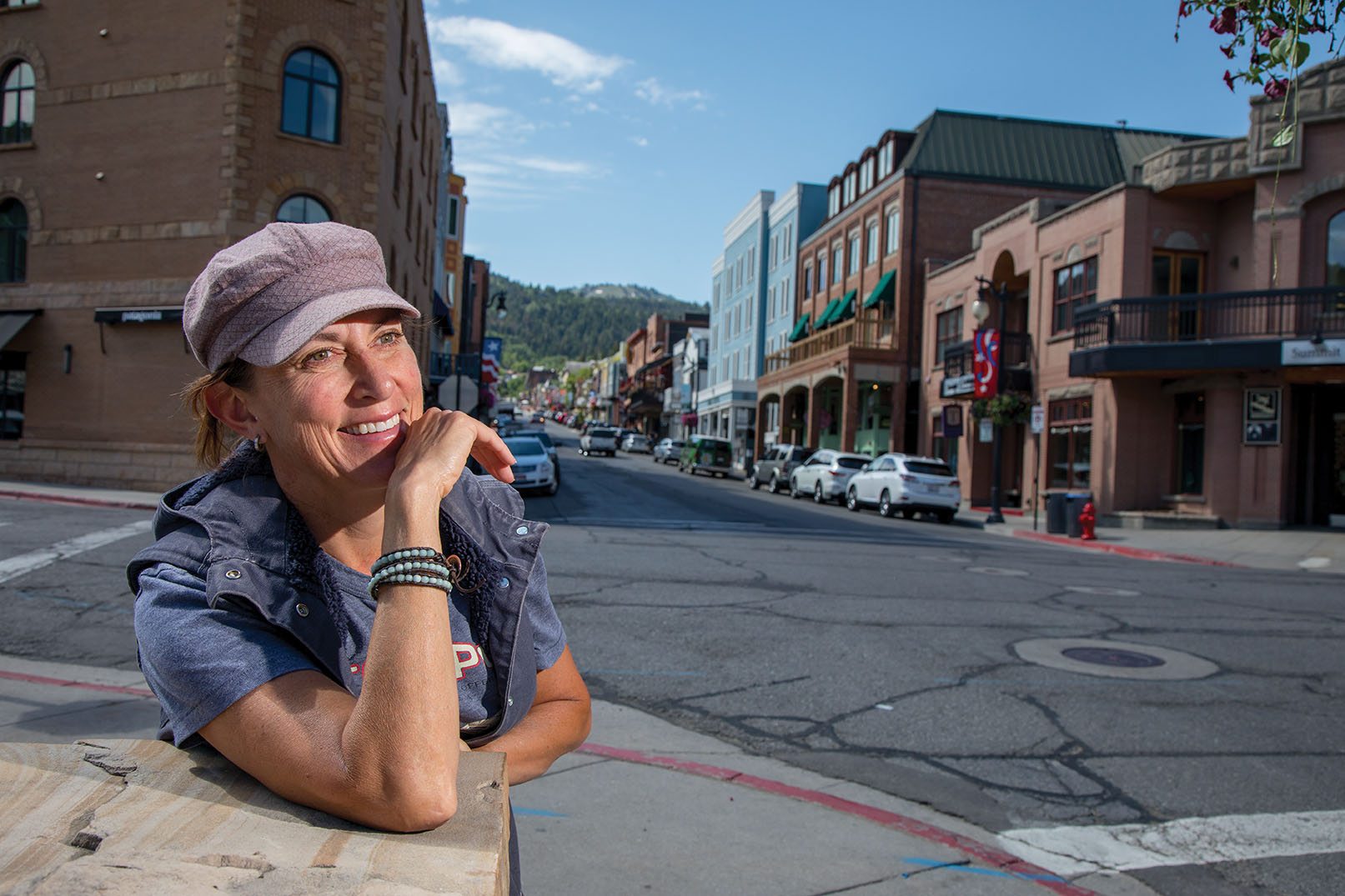
A collaborative effort – the first of several “sequence projects” – heralded Brooke’s return to higher education.
Student teams in the introductory project are steered toward nonprofits, such as a recent one that dispatched a team of communications students to devise a marketing strategy for immigrants seeking a foothold in Salt Lake City’s dining and food truck scene. In another such project, Brooke and two teammates were tasked with raising the profile of a small research office on the Westminster campus – the little-known, two-person Great Salt Lake Institute.
No one questioned the institute’s expertise on matters such as the “microbial composition of (Great Salt Lake) stromatolites, and lake microbial mercury methylation.” But in terms of public outreach, the institute did little beyond issuing position papers and guiding high school and college students’ field trips to the famous lake.
Brooke brought a “tenured perspective” to a team that spent the summer developing strategies to build awareness of an office and its researchers – a quirky pair who often wear pelican-billed baseball caps as a tribute to that Great Salt Lake migratory bird.
Rechristening the institute became the top priority of Brooke and her colleagues. They struggled to find a marketable moniker for an academic institute committed to esoteric analyses of a body of water that Brooke says locals often dismiss as a “dead, stinky lake.”
The challenge proved daunting. But after several weeks, Brooke and her team came up with a new name, which institute officials are considering and may unveil in April as part of the institute’s 10th anniversary celebration.
With the rebranding project completed, Brooke turned to the next step in earning her degree: a series
of individualized tasks that build toward a capstone – a project designed to enhance a student’s workplace or, in the case of an entrepreneur, his or her own business.
“My friends always ask, ‘Why are you going back to school at your age and with your level of experience?’” says Brooke, who enrolled in the Westminster master’s program in January. “I tell them, ‘It’s a great way to really sharpen your skills and rethink where you’re headed.’ I’m trying to essentially rebrand myself, refresh my career and open up a new chapter. The competency-based program is the perfect way to do that.”
Discipline is required
For all of the benefits that CBE affords, Westminster officials emphasize that the model isn’t for everyone.
“You have to take ownership,” notes Ryan Lewis, director of Graduate and Adult Program Services. “That takes a certain amount of discipline.”
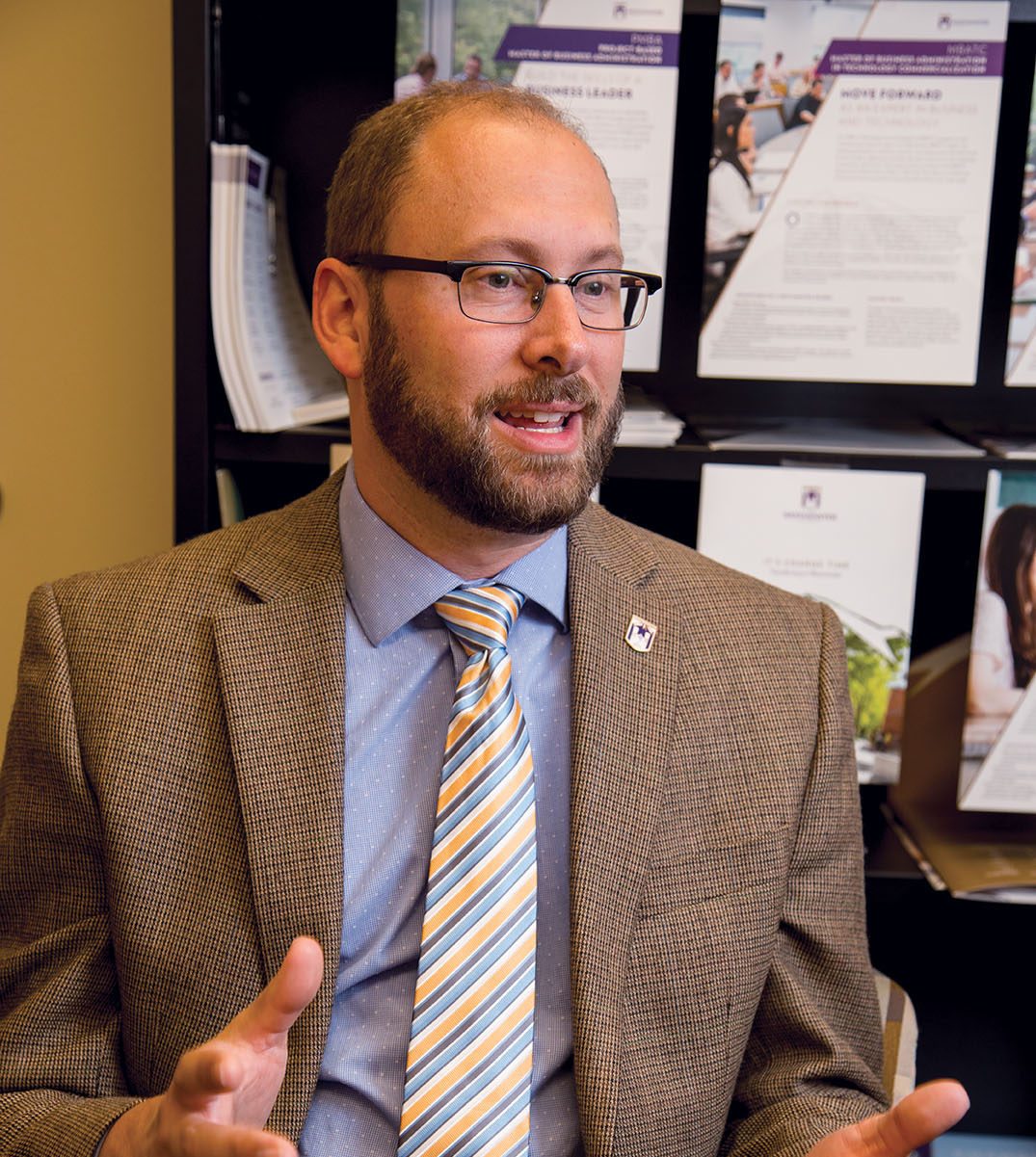
Gentile says the competency-based programs hold a special appeal for females in Utah, a state where the post- secondary education of many young women lapses when they leave for two years of service as Mormon missionaries and often return to marriage and motherhood. For working mothers, competency-based education offers a practical solution to squeezing college-level studies into an already-packed calendar.
Flexibility definitely influenced Amy Archuleta’s decision to enroll in Westminster’s program. The payoff came in course work that repeatedly introduced her to terminology and practices she could apply to the launch of her new business – Spa Trouvé on 9th, an upscale salon providing medically approved skin-care enhancement. Her lessons in marketing helped Archuleta identify a prime location at the edge of Central City, prepare the direct-mail coupons that brought scores of customers to the store during its opening week, and even devise the shop’s interior design.
The knowledge gained in her studies also came into play when a bank official referenced an “opportunities and threats” clause in the loan application. Archuleta says she didn’t have to pay an attorney to define the clause (a standard analysis of strengths and weaknesses found in business contracts), explaining: “I already knew what it was because I’d learned about it” through her degree work. “I don’t have to study anyone else’s business,” she adds. “I can apply what I’m learning to my own.”
Archuleta’s educational experience – hands-on, practical and applicable – illustrates a fundamental strength of competency-based education, a learning model that Westminster officials consider vital as higher education shifts to better serve adult students. As Ryan Lewis says: “CBE helps you to learn in a way that the real world works.”
Westminster’s program, though flexibly paced, does adhere to a traditional semester timeline. However, rather than earning traditional grades for their work, students’ projects are judged according to three basic standards:
- Does Not Meet Expectations.
- Meets Expectations.
- Exceeds Expectations.
The goal is for students to keep working at a project until they reach mastery – “until they (fully understand) the concept they’re trying to learn,” Lewis explains.
That philosophy gets two thumbs up from Emily Quinn, a second-year student in the Master of Strategic Communication program.
“Most of the time when you fail in school, you move on and forget about it,” says Quinn. “But if a (CBE project) doesn’t work, you just keep working on it. It’s like real life.”
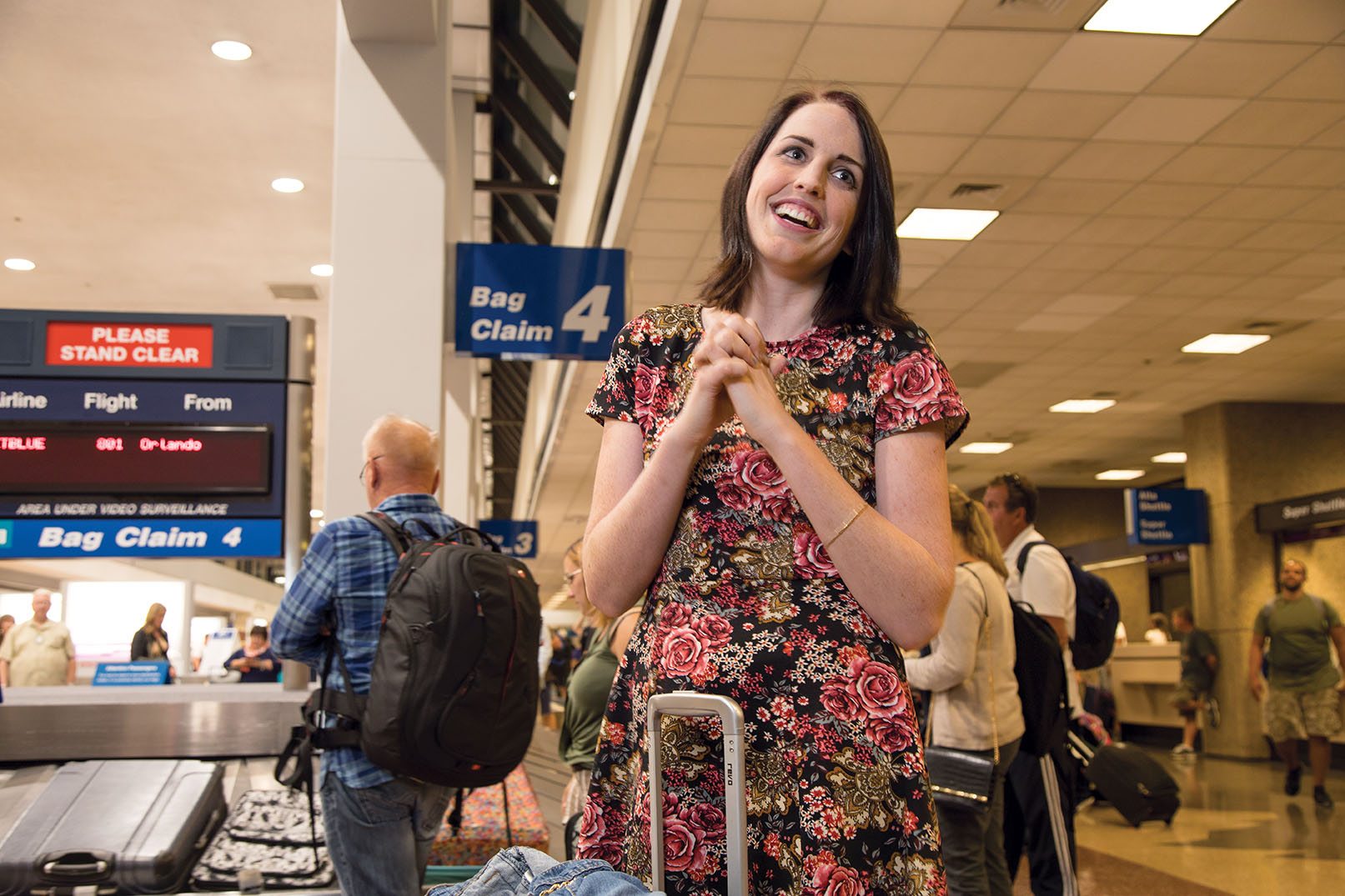
The push for excellence – coupled with the personal attention afforded each CBE student – does come at a cost.
“It is not a cheap model of education,” admits Gentile, the provost of a school with an average annual price tag a little north of $40,000. “It is not one-curriculum-fits-all. It is very labor-intensive, and figuring out the teaching loads is still a lot of work.”
Lewis, who moved into his current position in 2015 after 18 years as a Westminster IT specialist, believes the return on investment in the program makes it worth every penny for students. “We wanted an individualized online model that guaranteed they wouldn’t get lost in the crowd,” he says.
Westminster works hard to prevent that sort of student disappearance – but not with Emily Quinn. No need. She’s a young woman who could never be overlooked.
Different … and determined
As Quinn unabashedly tells the nearly 4 million viewers of her YouTube videos, she is an “intersex” American – part of the estimated 1.7 percent of the population who are born with genetic anomalies that fall outside the traditional binary conception of the male or female body.
As she says in a video filmed last year: “When I told my friends I was making a YouTube channel about intersex issues, they said, like, ‘Wow, that takes a lot of balls!’ And I was, like, ‘Thanks. Good thing, because I’ve got ’em!’”
As explained by an advocacy group called interACT, the variations that define an intersex individual can be manifested internally or externally and in several different forms, including males born with ovaries and – as is the case with Quinn – females with internal testes. The characteristics are often identified at birth, but determinations made during puberty are fairly common.
The interACT group promotes compassion, understanding and education, and it strongly supports the idea of allowing children with atypical sexual characteristics to make their own decisions about corrective surgery when they are old enough to resolve the question for themselves.
The birth of an intersex child has long been a circumstance addressed quietly within families. In her role as the national youth coordinator for interACT, Quinn travels the country to push the discussion out of living rooms and into the public spotlight. And to help her do that, she turned to the Westminster graduate program in strategic communication.
Quinn’s first conversation with another intersex person didn’t occur until she was 24 and living in Los Angeles, having parlayed an undergraduate degree in animation into a job with the Cartoon Network. When she consulted on a project to introduce an intersex character in a MTV production, she decided to go all in and become a full-time advocate.
“I knew animation,” Quinn recalls. “But I didn’t know much about management and marketing.”
For her, the Westminster program had two things going for it. First, it’s flexibly paced, so it “fit the lifestyle” of someone who travels around the country delivering interACT talks and conducting counseling sessions. (Quinn relocated to Rhode Island this summer to be closer to the organization’s headquarters in Sudbury, Mass.) Second, there’s a personal connection: Quinn’s father, Chris, is a professor in – and chairman of – the university’s music department.
Her capstone project is both near and dear – personal and professional.
“I’m self-branding,” Quinn says, poking fun at herself. “I chose myself as a client.” Turning serious, Quinn says she views her studies as a practical pathway for her to address a deeply personal issue.
“It’s emotional,” she admits. “But the only way (intersex advocacy) will work is by addressing it strategically. I’m learning to tell stories for a marginalized community.”
As competency-based education nears its second decade on the Westminster campus, Director Hedges is steering the program through the first of what he foresees as multiple partnerships with the private sector.
“One of my jobs is to now go to companies to ask: ‘What do you need?’” says Hedges.
The Discover partnership
Discover Financial Services was among the first to respond to that question, asking Hedges to submit a proposal for a company-college alliance. First, the firm spelled out what it didn’t want: a traditional, company-subsidized tuition-reimbursement program that would pay for college credits earned in a general business program. What it did want was a customized undergraduate degree program in business administration that would help its employees meet specific needs at Discover operations in Salt Lake City.
“As long as the numbers work, we’ll make it work,” Hedges promised. And the numbers came together.
Next spring, the first cohort of Discover employees – 18 students – will complete their basic education requirements through Salt Lake Community College and begin competency-based studies with the Westminster business faculty. Discover has already converted two conference rooms in its Salt Lake City facility into classrooms.
To Hedges, the Westminster-Discover partnership is but another window into the unlimited potential of competency-based education – a trend that he calls “absolutely the most rewarding educational experience I’ve been a part of.”

